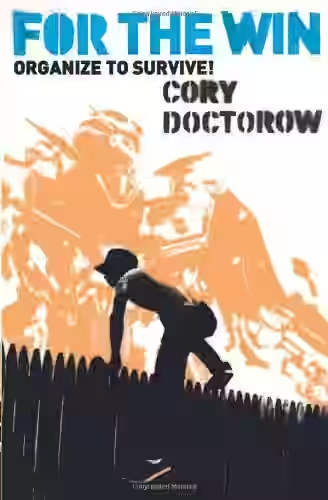
Cory Doctorow's 'For the Win' is a riveting exploration of the intersection between economics, technology, and global labor rights. Set in a near-futuristic world, the novel delves into the lives of gamers across the globe who engage in virtual economies, highlighting their struggle for fair labor practices. As characters from the United States, India, and China unite to form a virtual union, Doctorow skillfully illustrates the potential impact of digital and real-world activism. The story is a thought-provoking commentary on globalization and the power dynamics of economies, all wrapped in an engaging narrative filled with tension and optimism. 'For the Win' pushes readers to consider the implications of our increasingly interconnected economies and the role technology plays in shaping societal structures.
About Cory Doctorow
Cory Doctorow is a Canadian-British author, activist, journalist, and blogger, renowned for his significant contributions to science fiction and discussions on digital rights. Born on July 17, 1971, in Toronto, Canada, he quickly became a key figure in the literary and technology spheres. Doctorow's notable works include 'Little Brother', a thought-provoking young adult novel that explores themes of surveillance and civil liberties, and 'Down and Out in the Magic Kingdom', a pioneering tale set in a post-scarcity world. As a co-editor of the popular blog Boing Boing, Doctorow has been a vocal advocate for issues such as copyright reform and free cultural distribution. His work not only captivates readers with its speculative narratives but also challenges normative views on technology and society, securing his place as an influential voice in contemporary literature and digital discourse. Doctorow's impact is further magnified by his numerous awards, including the Prometheus Award for libertarian science fiction, and his role in shaping conversations around the future of the internet and creative innovation.
Similar Books
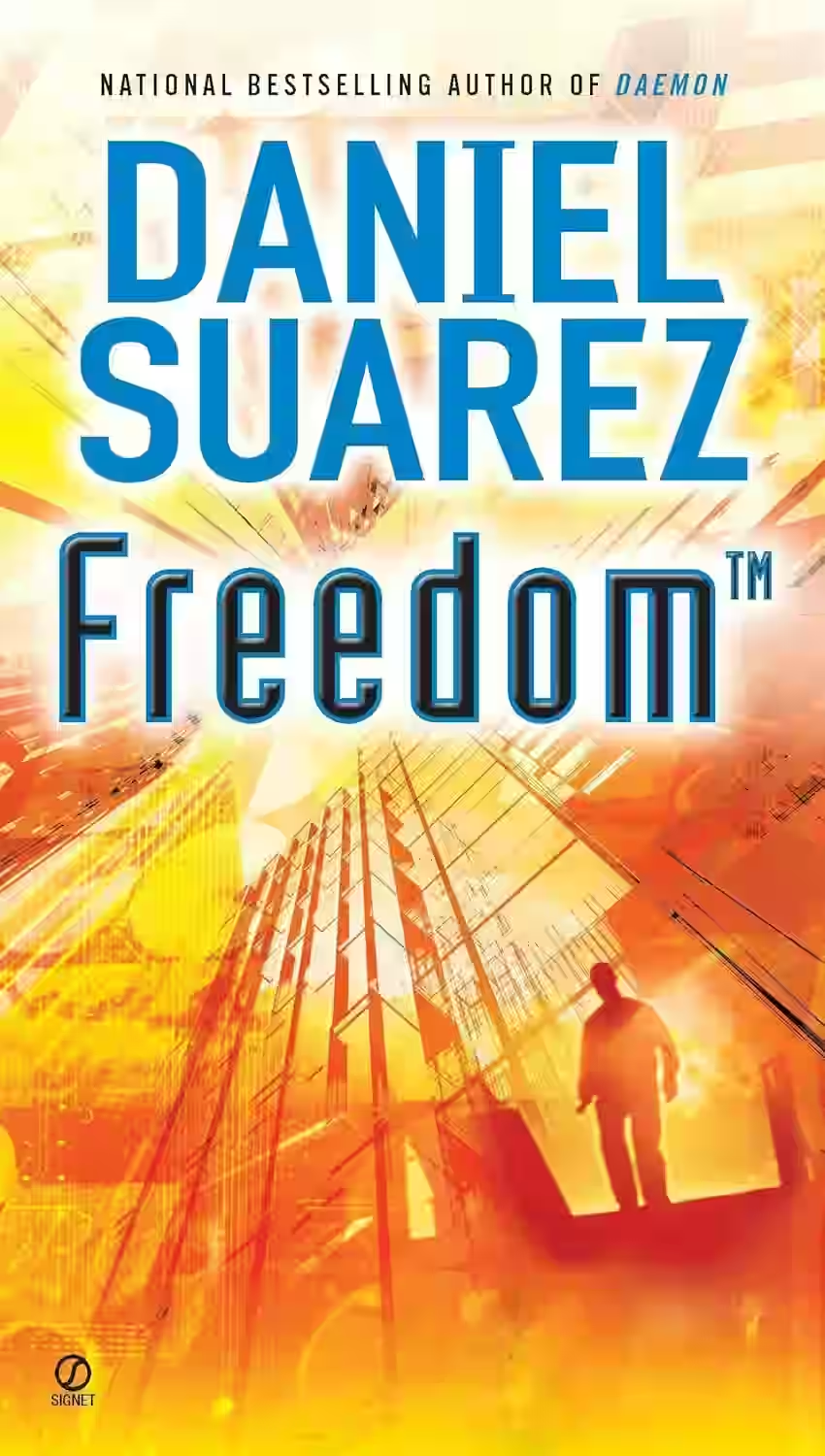
Freedom (TM)
Series: Daemon (#2)
"Freedom (TM)" by Daniel Suarez is a gripping techno-thriller that picks up where its predecessor, "Daemon," left off. The novel delves into themes of control, societal structures, and technological autonomy as it explores the complexities of an advanced AI system known as the Daemon. Laying down a narrative interwoven with cyber warfare, political intrigue, and questions of economic inequality, Suarez crafts a story that is as thought-provoking as it is action-packed. Characters on various sides of the conflict — hackers, corporate moguls, and rebels — navigate a digital future that challenges the nature of freedom and privacy. With its intricate plotting and a keen eye on future technological prospects, "Freedom (TM)" immerses readers in a vivid exploration of humanity's potential path forward.
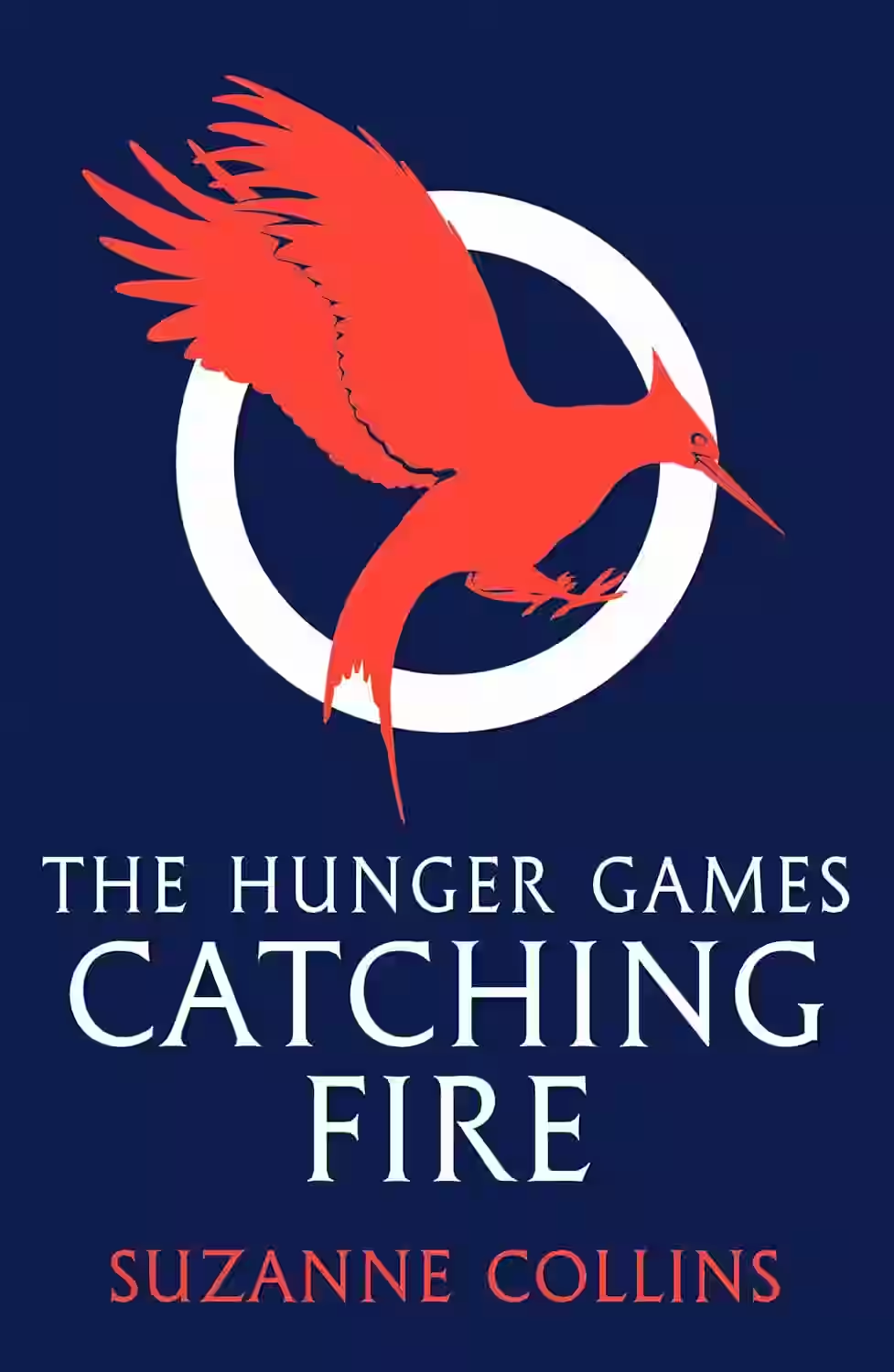
Catching Fire
Series: The Hunger Games (#2)
In 'Catching Fire' by Suzanne Collins, the second installment of the Hunger Games trilogy, readers are once again transported to the dystopian world of Panem. The story follows Katniss Everdeen after her victory in the brutal Hunger Games as she unwittingly becomes a symbol of rebellion against the oppressive Capitol. Faced with the consequences of her defiance, Katniss must navigate a dangerous new arena in the Quarter Quell, where the stakes are higher and the challenges more treacherous. Collins expertly weaves themes of survival, sacrifice, and political intrigue into a gripping narrative that keeps readers on the edge of their seats.
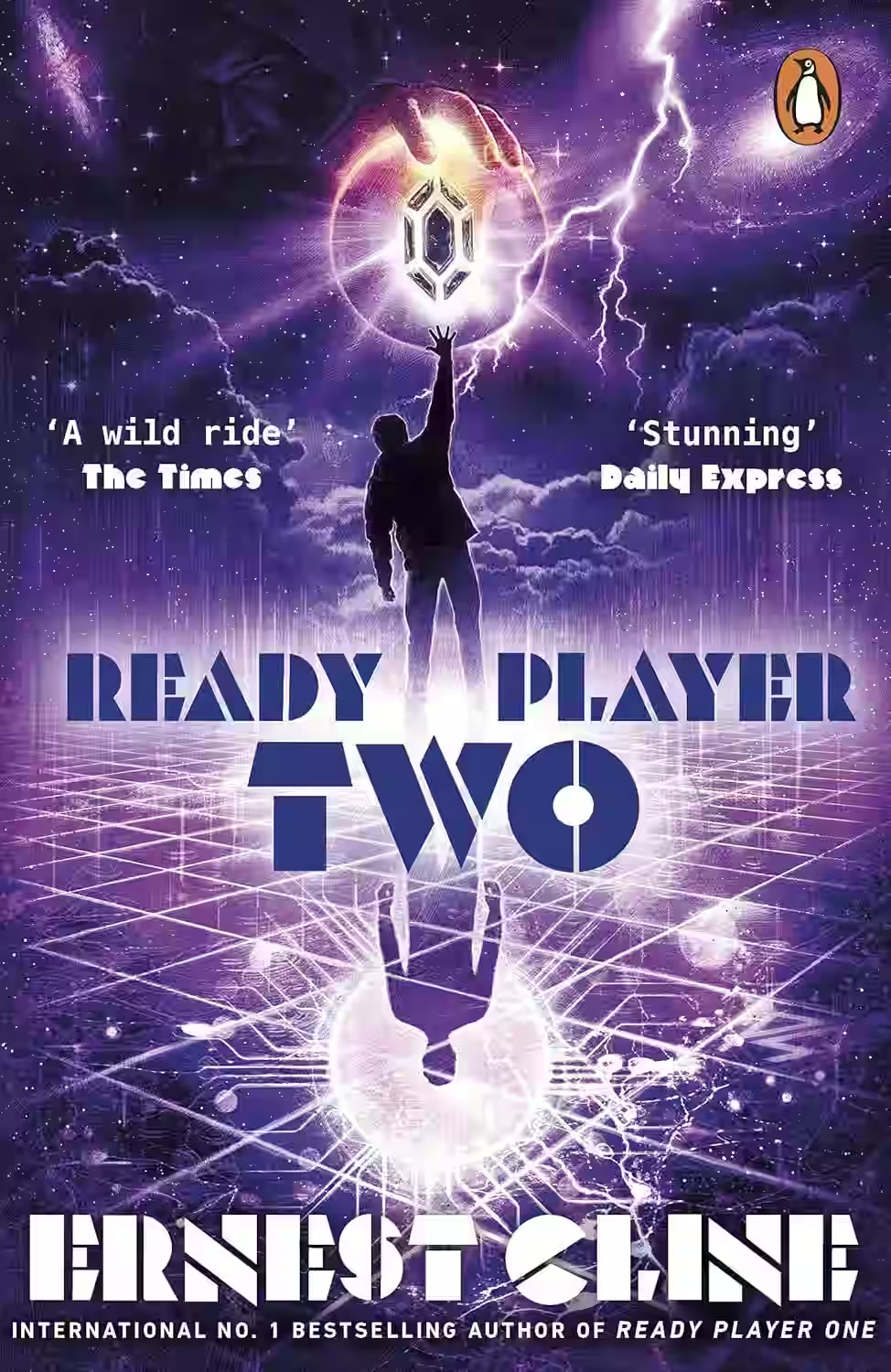
Ready Player Two
by Ernest Cline
Series: Ready Player One (#2)
In 'Ready Player Two', Ernest Cline returns to the vibrant and nostalgia-laden virtual world of the OASIS, launched in his earlier hit 'Ready Player One'. This sequel dives into a new adventure following protagonist Wade Watts as he discovers an enigmatic technology left by the brilliant James Halliday. With potential to revolutionize the digital realm, this new invention also poses unforeseen dangers that could affect the real world. The novel places a strong emphasis on themes of technology and ethics, exploring how they intersect with human experience and identity. While aiming to replicate the magic of its predecessor, 'Ready Player Two' sometimes struggles under the weight of expectations, yet it offers familiar pop culture references and thrilling quest elements that will appeal to fans of the original. The book delivers a mix of adventure, nostalgia, and contemplation of the digital age's impact on society.
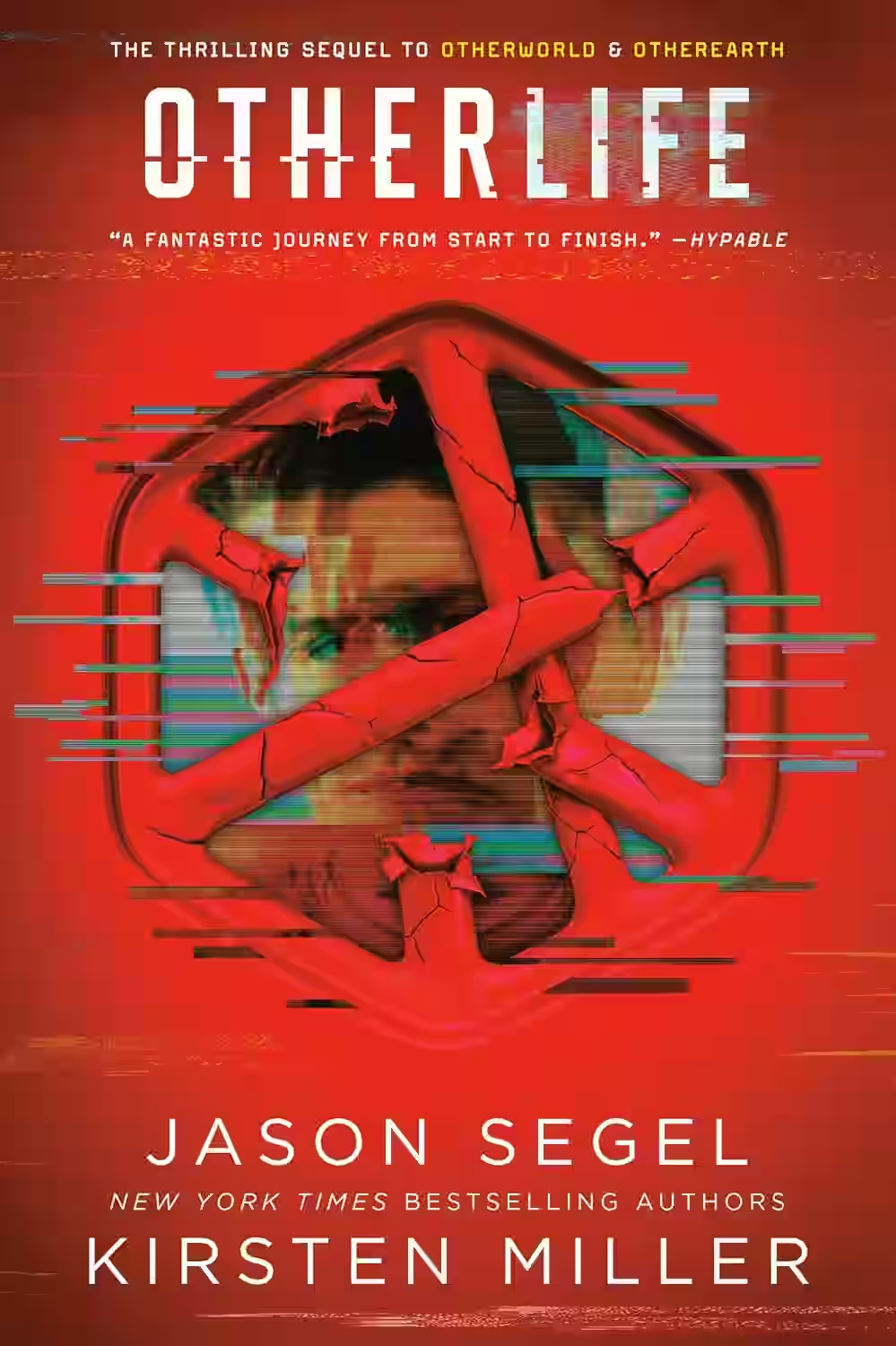
Otherlife
by Jason Segel, Kirsten Miller
Series: Last Reality (#3)
In 'Otherlife,' Jason Segel weaves a captivating narrative that draws readers into a world where the boundaries between virtual and reality become intriguingly blurred. This novel, the thrilling conclusion to the Last Reality series, follows Simon, a teenager embroiled in the captivating and sinister technology of Otherlife. As Simon grapples with the repercussions of a virtual society, he must confront ethical dilemmas, personal loss, and the thirst for truth. Segel's depiction of friendship, loyalty, and the quest for identity amid an ever-changing digital landscape resonates deeply, making 'Otherlife' both an exhilarating ride and a cautionary tale about the insidious allure of virtual escapism.